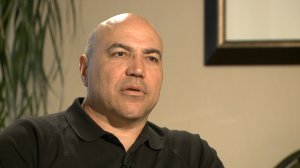AURORA, Colo. — A Lakewood woman who lost her left breast during reconstructive surgery claims she has no legal recourse because of Colorado’s government immunity act.
Jemma Burnett underwent a double mastectomy surgery April 26 at the University of Colorado Hospital in Aurora.
“I’ve tested positive for the BRCA 2 gene,” said Burnett, who has a family history of breast cancer and decided to have both of her breasts removed.
“You can’t get breast cancer if you don`t have breast tissue.”

Despite its name, the hospital is not owned by the University or the state of Colorado. It’s owned by UCHealth, a private nonprofit that gets a legal benefit normally granted to publicly owned hospitals , government immunity.
“I wouldn’t go to a hospital where you can’t sue for malpractice. There’s no reason for them to step up their game because there is no consequences for bad behavior,” said Burnett, who had no idea when she chose the hospital that it would be difficult to sue if anything went wrong.
Six days later, the 46-year-old had to return for emergency surgery when she developed a blood clot in her left breast.
Doctors were unable to save her breast and Burnett blames a time delay in getting her into surgery after she arrived in the emergency room.

“They had us wait for hours,” claimed Burnett, who believes her tissue lost blood and went dead while waiting in the emergency room.
After combing through her medical records, Burnett suspects she waited nearly six hours for surgery and remembers overhearing a surgeon asking, “What was taking so long?
“The staff said that several (patients) had come in and they didn’t have enough hands, they didn’t have enough staff,” Burnett said.
In a letter to Burnett dated July 29, UCHealth, states the emergency room wait was shorter and not a factor.
“The two hours, 41 minutes it took to get to the operating room did not affect the viability of your breast,” according to the letter.

The hospital refused to discuss Burnett’s even though she offered to sign a patient consent form. Burnett said she called nine attorneys and not one would touch her case.
“We probably get 25-plus calls a month that are directly related to a public facility,” said medical malpractice attorney Jim Puga, who was contacted by Burnett.
Puga said his his firm rarely takes such cases.
“Almost none,” he said.

The reason Puga said, is the state’s government immunity law that caps damage awards at $350,000 for any claim against a public agency.
He said the amount is too low for most attorneys to justify filing a lawsuit.
Puga said the odds of winning a lawsuit are 50-50 at best and after subtracting attorney fees and expenses for medical experts, there might be little or no money left for the client even if a jury awards the full amount.
“One of the real tragedies of caps is they defeat a major purpose of tort law and that is to hold people accountable and to improve care, you will improve care,” Puga said.
University of Colorado law professor Richard Collins said it’s a safe assumption that publicly owned hospitals face fewer lawsuits than they otherwise might because of the statute.
Collins suspects Colorado lawmakers established the caps to protect state government from jackpot juries.
“They’re worried about some political jury that would impose liability on the state for millions or billions of dollars,” Collins said.

The state can lift the cap in a specific case, but it’s rare. The Lower North Fork Fire in 2012 proved to be the exception after a controlled burn got out of control.
The unintentional fire destroyed 22 homes and killed three people. Lawmakers approved $18 million to be divided among all the victims.
“Some pretty powerfully connected folks had damage and wanted to be compensated,” Puga said.
Burnett acknowledges she is not politically connected.
“It’s not fair. That is not fair,” Burnett said.
The hospital said in an email it’s considered a quasi-government entity in part because it treats the most Medicaid patients in Colorado and in 2016 provided $223 million in uncompensated care for uninsured and underinsured patients.
Burnett said the hospital is willing to do an implant surgery to replace her left breast, but she’s decided to seek a referral elsewhere.
The damage cap for state entities used to be a $150,000 but in 2013, Colorado lawmakers raised it to the current amount, still too low, according to numerous medical malpractice attorneys.